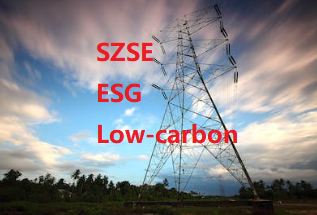How Central Banks and Supervisors are Helping to Green the Financial System?
The NGFS has grown significantly in the last five years.
- The NGFS was established in 2017 as a coalition of central banks and financial supervisors to help green the financial system and contribute to global climate action.
- We started with 8 founding members but have now grown to 140 members and observers.
- When we started, we did not have any African members. Today, we have 13 members from Africa.
- Even as I speak, we have central banks and supervisors applying to join the NGFS.
- The NGFS is a professional organisation, a technical forum, dedicated to helping our members – central banks and supervisors – deal with the challenges posed by climate change.
Why are central banks and supervisors increasingly focused on climate change?
First, the physical effects of climate change and the transition effects of mitigation could have significant macroeconomic consequences.
- Climate-induced natural disasters, disease outbreaks, reduced agricultural yields and water shortages will affect health, mortality, and labour productivity.
- Transition and adaptation measures could have inflationary consequences as higher carbon prices and scarcity of minerals critical for renewable technologies feed through into the production of goods and services across the economy.
Second, physical risks and transition risks could have adverse implications for financial stability.
- More frequent and severe natural catastrophes could lead to asset impairment for banks and underwriting losses for insurers.
- Transition risks that arise from mitigation policies such as carbon taxes could result in stranded fossil fuel assets and other knock-on effects across the financial system.
Third, green and transition financing is nowhere near what is required to get to net-zero by 2050.
- According to McKinsey, getting to net-zero 2050 would require about US$9.2 trillion of investment per year, but only about US$5.7 trillion per year is being invested today. We are more than 35% short of the annual investment required.
- Central banks and supervisors can play an important role as convenors, influencers, and facilitators to help pivot the financial sector towards supporting decarbonisation efforts.
This is why at COP26 in Glasgow last year, we published the NGFS Glasgow Declaration: Committed to Action.
- We reiterated our commitment to strengthen our collective efforts towards greening the financial system.
- The remarkable expansion of the NGFS’ work programme is testimony to how seriously our members take this responsibility.
Let me list ten key NGFS initiatives.
- enhancing supervisory practices on managing climate and environmental risks
- designing actionable climate scenarios
- assessing the implications of climate change for monetary policy
- providing guidance for central banks’ own net-zero transition
- analysing nature-related financial risks
- building capacity among the NGFS membership
- addressing challenges related to climate data
- raising awareness about climate-related legal risk
- advancing climate-related knowledge through research
- convening key stakeholders and facilitating blended finance projects
I will highlight four of these initiatives.
First, the NGFS climate scenarios.
- More than 30 central banks and supervisors have used the NGFS scenarios to help identify, assess, and understand climate risks in their economies and financial systems.
- The IMF is using the scenarios to assess the impact of climate change on banking sector stability risks under its Financial Sector Assessment Programme.
The NGFS published in September this year the third vintage of its climate scenarios.
- We updated the scenarios to take account of:
- country-level climate commitments made at COP26 last year;
- updated GDP and population pathways; and
- latest trends in renewable energy technologies.
- The latest NGFS scenarios have proven to be timely for two reasons.
One, the latest scenarios estimate the potential losses arising from extreme weather events, such as floods and cyclones.
- This year alone, severe droughts and heatwaves have swept across Europe, North America, and China, while record rainfall in countries ranging from Pakistan to Australia have caused devastating floods.
- The updated NGFS scenarios suggest that under a business-as-usual pathway, global GDP could decline by up to 20% by 2100 due to climate change – a stark reminder of the necessity to take urgent mitigation action.
Two, the global energy crisis unleashed by the war in Ukraine has fast-forwarded the world to the NGFS’ scenario of a disorderly transition.
- But notwithstanding the economic and social disruption caused by high energy prices, we have a unique opportunity to accelerate the transition to net zero.
- Renewable energy has become more attractive, not just from a financial perspective but also from an energy security angle.
- There are encouraging signs that the shift to renewable energy is accelerating.
- The International Energy Agency has estimated that recent policies in major energy markets will help boost clean energy investment by 50% from current levels to about US$2 trillion annually by 2030, with global demand for all fossil fuels expected to peak around 2030.
The NGFS will continue to refine its scenarios.
- We will enhance the granularity of some of the scenario parameters, and introduce short-term adverse scenarios for stress testing purposes.
- We welcome feedback on how we can make our scenarios and publications more relevant to a wider range of stakeholders across both the public and private sectors.
The second key NGFS initiative: climate-related data.
- Credible and comparable data is foundational for effective climate action.
- It allows financial institutions to better manage their climate risks, channel capital to transition-aligned activities, combat greenwashing, and account for net zero commitments and transition plans.
The NGFS issued in July this year a report making four recommendations to improve the quality, availability, and comparability of climate related data:
- foster convergence towards a baseline global disclosure standard, such as the draft standard proposed by the International Sustainability Standards Board (ISSB);
- achieve greater interoperability of taxonomies for sustainable finance;
- develop well-defined, forward-looking metrics around sectoral transitions; and
- leverage available data sources and tools through knowledge sharing and capacity building.
The NGFS has set up a Data Directory that catalogues available climate-related metrics and data sources.
- These are organised and searchable by specific stakeholder use cases, such as scenario analysis and climate-related financial disclosure.
- The directory will improve the dissemination of existing climate related data and help identify potential data gaps.
- The first version of this directory can already be accessed on the NGFS website.
- A panel session later this afternoon will discuss and elaborate on our data initiatives.
The NGFS will form an expert network on climate data-related topics.
- This network, targeted to be set up by the end of this year, will comprise a community of statisticians and data scientists, with the aim of sharpening the expertise on climate data-related topics.
Third key initiative - blended finance to unlock more capital for green and transition projects.
- We need to improve the risk-reward ratio for marginally bankable transition projects to attract private capital.
- This can be done through catalytic and concessional funding from the public sector and philanthropic sources to crowd in multiples of private capital.
- By absorbing a portion of project risks, providing technical assistance, and lending their reputation and expertise, the public sector can help to attract private investors that would not otherwise have provided funding for these marginally bankable projects.
Today, the NGFS is launching a Blended Finance Initiative.
- The aim is to raise awareness on blended finance among our members, with a focus on overcoming potential regulatory and implementation obstacles.
- The Initiative will be co-led by MAS and De Nederlandsche Bank (DNB).
A key deliverable of this Initiative is to develop a Blended Finance Handbook.
- It will complement various efforts by the public and private sector, including the Sharm El Sheikh Guidebook for Just Financing that the Egyptian Presidency will be launching later today.
- The NGFS Handbook will:
- draw on key lessons from past case studies on blended finance projects; and
- provide practical guidance on scaling up blended finance in emerging markets.
- Work on the Handbook will be led by the IMF, and we expect to complete the Handbook by COP28.
A second key deliverable of the Blended Finance Initiative is to facilitate a few demonstrative projects. These projects will aim to:
- deploy innovative financing instruments;
- attract a broader range of private investors; and
- better leverage the risk-absorption capacity of multilateral development banks.
Fourth key initiative by the NGFS – help our members build the skills and capabilities to better manage climate change and other environmental risks.
- We are working on a two-fold mapping to identify the training needs of central banks and supervisors and match these to the existing supply of training resources available.
- Where there are gaps, we will work on identifying strategic partnerships with relevant training providers.
- We are also developing a structured guide to help central banks and supervisors design and develop training and capacity building programmes for their staff.
The NGFS is working with partners such as the World Bank, IMF and BIS to channel sustainability training resources more effectively.
- Last year, we launched the Climate Training Alliance (CTA) online portal, a collaborative effort among NGFS, BIS, International Association of Insurance Supervisors, and the UN-convened Sustainable Insurance Forum.
- The CTA brings together climate training resources in a single portal for supervisors and central banks.
- About 700 supervisors and central bankers from more than 90 jurisdictions have benefited from CTA’s programmes in climate and environmental risk management.
In sum, the NGFS has made good progress in a short span of time.
- This would not have been possible without the commitment and contributions of our members, observers, and partners.
- The NFFS will continue to translate our commitments into actions, and ultimately actions into real impact.





















































First, please LoginComment After ~